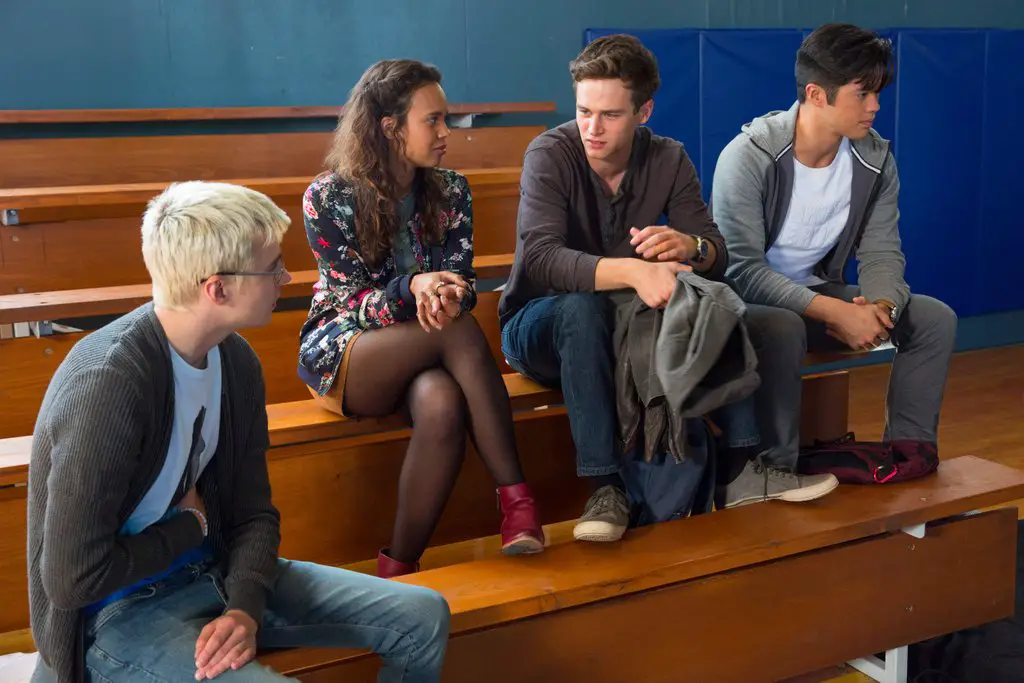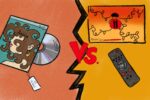Suicide Watch
I know I’m just playing into the hype, but let’s call the show what it is—a gimmicky premise driven by controversy.
By Karen Juarez, University of Illinois at Chicago
Recently, Jay Asher’s popular book-turned-TV-show, “13 Reasons Why,” has been all that anyone has been able to talk about.
As a result of the book’s popularity, the show had a lot of anticipation surrounding it before it was even released, not only from fiction lovers, but from viewers captivated enough by the mysterious trailer. But whether you’re looking for a new show to binge, or were just excited to watch the adaptation after reading the book, don’t put the show on a pedestal. In the series’ attempts to portray the sensitive issues that constitute its very appeal, the Netflix release fails to do so intelligently. As a result, it end up being nothing more than sensational draw that pulls in viewers for the wrong reasons, and here’s why.
1. Suicide Squab
The show, which centers around the suicide of the fictional character Hannah Baker, is a trap for the glorification of death. You see, she’s already dead when the show starts, so everything leading up to the final episode when Hannah finally kills herself is her “justification.” As a result, one of the creepiest things about the show is that, because of the way it’s been built, when Hannah finally takes her life, the audience feels satisfied. Instead of sadness, as a viewer her death brings you comfort, and recognizing that is one of the most unnerving realizations that I’ve ever experienced after watching a show.

If you’re sitting there agreeing with her decision, the show has already changed your opinion on the seriousness of death. You’ve glorified suicide and are placing it as a twisted form of absolution, when in reality death is tragic, depressing and affects everyone who knew the person. (Sorry, Selena, the best way to describe the show is not “beautifully tragic.” Romanticizing suicide is not cute.)
2. Trigger Happy
According to multiple experts, the way the series depicts Hannah’s death is unhealthy for younger viewers to witness, especially for teenagers who may be dealing with depression, anxiety or suicidal thoughts themselves. Even as an adult, watching the show was extremely difficult, so it’s understandable why the series and its critics feel the need to issue warnings to anyone trying to watch the show.
In addition to death and self-harm, “13 Reasons Why” also portrays violence, rape and bullying. Instead of showing these forms of abuse in a manner that suggests the characters’ ability to rise above them, all the figures in the show just stay silent. There is no encouragement to seek help, other than Clay, who—by the way—everyone wants dead too.
3. Who Will Counsel the Counselors?
During episode 13, the last person to be blamed as “a reason why” is the school’s counselor. Hannah goes to him for help after she’d been raped, but the counselor stereotypes her as a girl who “had sex and regretted it,” because she didn’t say no to her rapist. Explain how a person in shock is supposed to speak? (Yeah, the scene really ticked me off.)
Hannah walks out of the office, hoping the counselor would stop her, and guess what—he doesn’t! The exchange ends up making it look like the counselor didn’t give a fuck about her life, which is misleading. While counselors may not be perfect, they can be really helpful sometimes, and high school students should feel confident in approaching them with their problems. In high school, my friend would have such bad anxiety attacks that he almost couldn’t breathe, but talking to the counselor always helped him calm down. The portrayal the show gives of counselors isn’t fair, as it stereotypes them as useless and nosy, when, in reality, they are professionals whose job it is to help, as difficult as it may be.
4. Group Guilt-tripping
However, the counselor isn’t the only one Hannah blames as “failing to help her.” She expects every one of the people who screwed her over to at some point have done something differently, and, as a result, the audience is left with a set of very specific reasons regarding who is responsible for her suicide and why.
If you watch the whole thing, there is a turning point within every episode that explains why the person on the tape is responsible for Hannah’s death. Just like the other characters changed Hannah’s life, she could have as easily changed theirs. To place the blame on those around her, although they did affect her life negatively for the most part, is to glorify her suicide and normalize blame.
5. Bad Decisions, Bad Decisions
Every one of the characters makes some bad decisions, and it’s ridiculous how none of them really own up to them. Courtney, the girl with two guys for parents, lies about everything, because she doesn’t want to live up to everyone’s expectations of her being lesbian. But surprise, she’s got a thing for Hannah, and ruins Hannah’s image multiple times to save her own skin.
Like Courtney, none of the other characters seem to really learn anything from their mistakes, which makes Hannah’s suicide all the more meaningless. Plus, since none of the accused are really held accountable for their actions, the show implicitly condones looking out for yourself by showing that it works for the characters who sacrifice others for their own security.
6. Insensitivity Training
Along with romanticizing the tragedy of the show and the characters’ lack of growth, the main issue with “13 Reasons Why” is its insensitivity to those struggling with issues similar to Hannah’s. What if you’re like Hannah and not seeking help? What if you don’t know that you need help?
https://www.youtube.com/watch?v=JebwYGn5Z3E
It’s a show, so it’s graphic. Seeing is different than reading (as if the book wasn’t harmful enough), and the realism of the series can be painful to those who are triggered by its imagery. The creator of a petition to remove “13 Reasons Why” from Netflix sums up these emotions better than I could, explaining the immorality of profiting off of a show concerned with such serious subject matter. The show is dangerous and it is also incredibly easy to access, meaning that it runs a real risk of harming young people who are already in a precarious state of mental health.
7. Social Media Gets It Wrong
Here’s a short letter to everyone holding wannabe lectures about Hannah on Facebook: Shut up.
I don’t want to read about how “Hannah is so dramatic and stupid and doing too much.” If you watch “13 Reasons Why” and think that Hannah is dramatic, you are the problem. No, Hannah did not get help, but also the help failed her and that’s not okay. But she was not being overly dramatic; she had reasons to cry, be angry, seek revenge and feel things.
You cannot ruin someone’s life and call their reaction “too much” or dramatic. It shouldn’t have taken a show to reveal to viewers what a failure society is when it comes to basic manners. Kindergarten teaches people to be nice to one another; if you didn’t learn that, it says something about you.
















